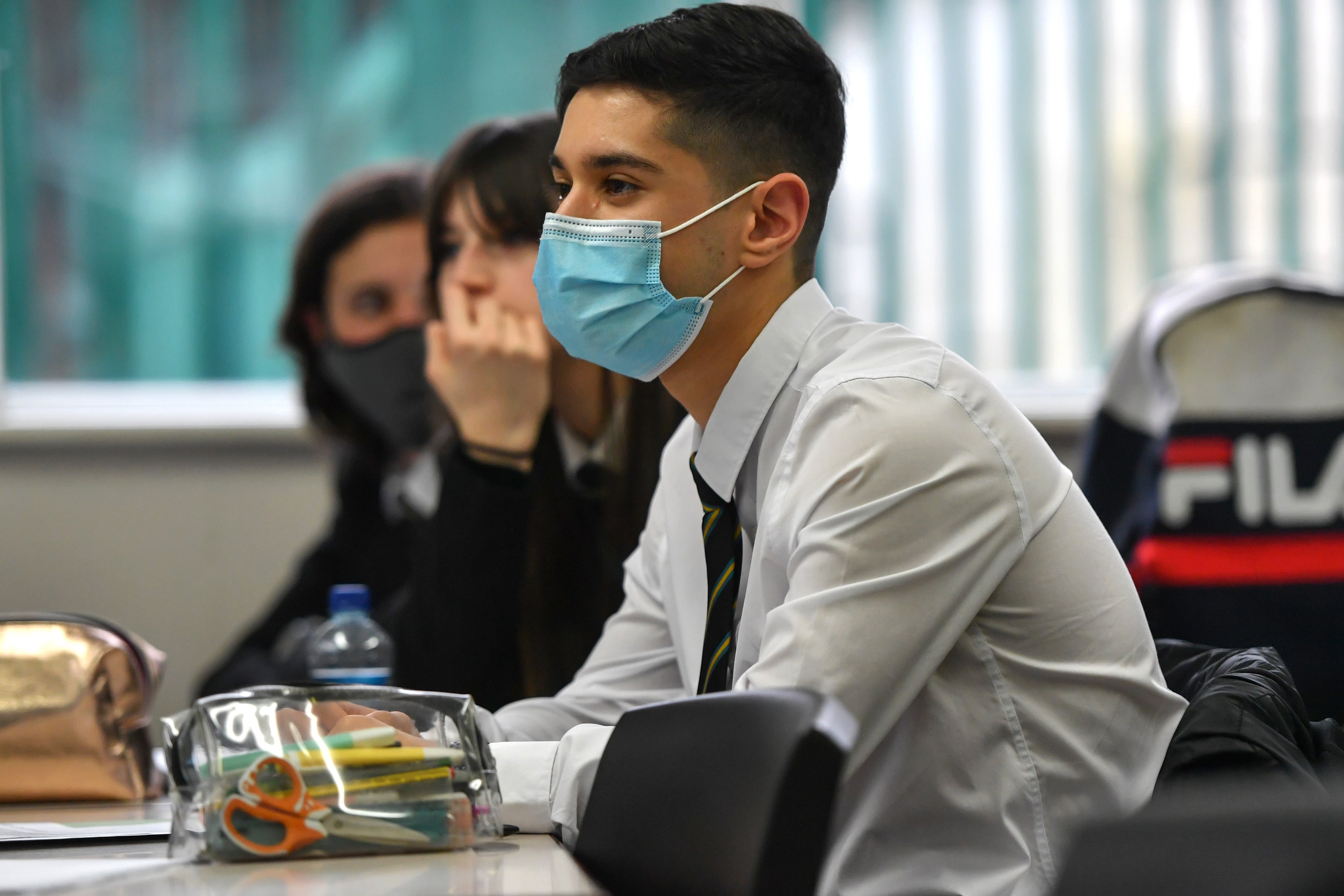Pupils set to be given advance notice of 2022 exam topics after Covid disruption
Government says changes are needed to ensure pupils are assessed fairly next summer

Your support helps us to tell the story
From reproductive rights to climate change to Big Tech, The Independent is on the ground when the story is developing. Whether it's investigating the financials of Elon Musk's pro-Trump PAC or producing our latest documentary, 'The A Word', which shines a light on the American women fighting for reproductive rights, we know how important it is to parse out the facts from the messaging.
At such a critical moment in US history, we need reporters on the ground. Your donation allows us to keep sending journalists to speak to both sides of the story.
The Independent is trusted by Americans across the entire political spectrum. And unlike many other quality news outlets, we choose not to lock Americans out of our reporting and analysis with paywalls. We believe quality journalism should be available to everyone, paid for by those who can afford it.
Your support makes all the difference.Pupils are set to be given advance notice of exam topics and greater choice in some GCSE subjects to compensate for disruption caused by the Covid pandemic.
The government has put forward suggestions for changes next summer, after formal exams were cancelled for two years in a row due to the coronavirus.
However, an education union said it was “very concerned” there was no mention of contingency plans if exams had to be scrapped again.
The suggestions for next summer’s exams include giving pupils a choice of topics to answer questions on in GCSE English literature, history and ancient history, as well as a choice of content for geography.
This would help “free up teaching time” and reduce pressure on pupils in some commonly taken GCSE subjects, the government said.
The consultation does not suggest this for A-level and AS exams, nor GCSE English language or maths, citing the “importance of covering the full curriculum” in these cases.
It also sets out plans to provide exam aids, such as a formulae sheet in GCSE maths and an expanded equations sheet in GCSE physics.
The proposals also say schools and colleges in England should be given advance information on the focus of exam content to help pupils focus their revision.
The government said it believed exams should be altered to ensure children can be assessed fairly following the “significant disruption” to their education caused by the pandemic.
A consultation on the proposed changes, launched on Monday, will run for the next few weeks.
Julie McCulloch, of the Association for School and College Leaders, said advance notice of subject areas included in exams would “allow students to focus their studies and reduce the risk that they will face questions on subjects they haven’t studied in sufficient depth because of the disruption caused by the pandemic”.
The union’s director of policy said the key question was when advance notice would be given and there would be “mixed views” on the government’s suggestion.
“We are very concerned that the consultation does not include proposals for a contingency plan in the event that exams cannot go ahead in 2022,” she added.
“The last thing we want to see is exams cancelled again but given what has happened this year and last year, it is simply a matter of common sense and prudence to map out a contingency plan at this stage.”
Gavin Williamson, the education secretary, said: “This year we have rightly asked those who know students best - their teachers - to determine young people’s grades.
"While I know the wait for results can be an anxious one, students and their families can look forward to receiving results next month in the knowledge that they will reflect young people’s hard work and enable them to progress to their next stage.
“Exams will always be the fairest way to assess students, which is why they will take place next year, but it’s right that next summer’s arrangements take into account the disruption young people have faced over the past 18 months.”
Additional reporting by Press Association
Join our commenting forum
Join thought-provoking conversations, follow other Independent readers and see their replies
Comments